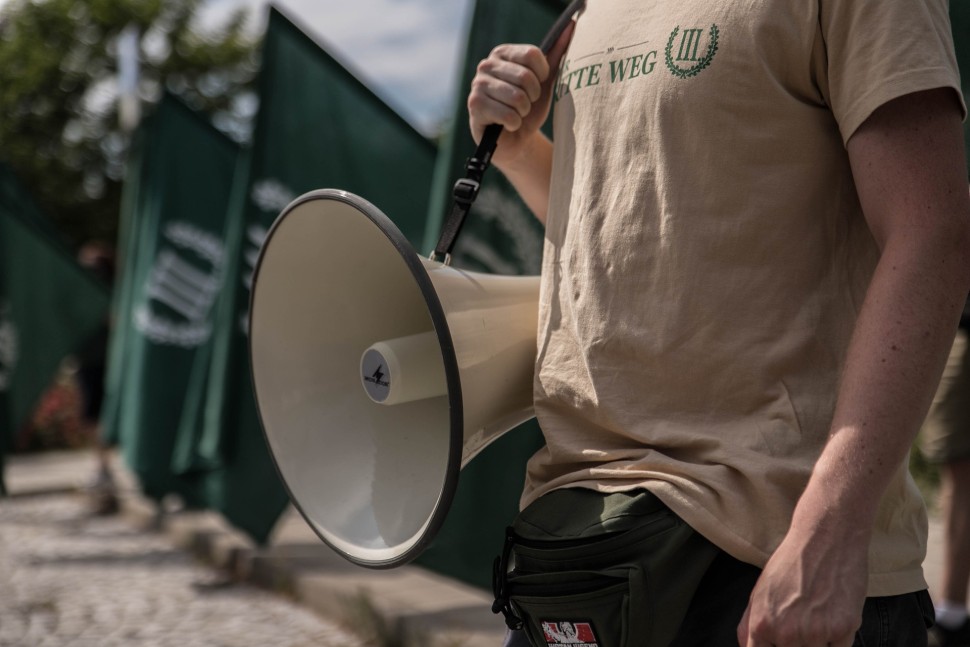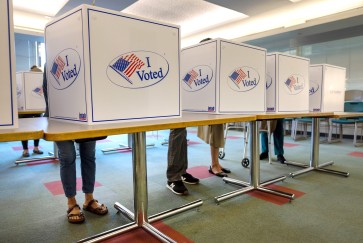During this socially volatile moment in the U.S., is there a connection between having been arrested and belief in the “American First” ideology espoused by President Trump?
A new study by researchers in sociology and law finds clues in the beliefs that “America First” populism expresses — beliefs that reflect economic frustrations and social boundaries drawn against “outsiders” and internationalism. The authors find an association between these “America First” beliefs and lifetime criminal arrests.
John Hagan is the John D. MacArthur Professor of Sociology and Law in the Weinberg College of Arts and Sciences and a faculty associate in the Institute for Policy Research at Northwestern, as well as a research professor at the American Bar Foundation. He is co-author of the study with professor Ron Levi and Ph.D. candidate Ioana Sendroiu, both at the University of Toronto.
“America First Populism, Social Volatility, and Self-Reported Arrests” was published recently in the Proceedings of the National Academy of Sciences (PNAS).
“Our findings are based on data from the National Elections Study. They are consistent with the view that the ‘America First’ political belief system is a potentially dangerous form of nationalist extremism, which urgently calls for greater study and scientific understanding,” Hagan said.
Hagan, Levi and Sendroiu discuss the study’s key findings.
Is this the first U.S./North American study to look at populist ideology and its link to criminal behavior?
Hagan: There are suggestions that the current populist movement taps into underlying economic frustrations, and that it is linked to violence, including research on incitement and hate crimes. We also draw on research from outside the U.S. that finds exclusionary political views are connected to crime and violence in situations of economic and political change. We were curious about whether current populist ideas are also connected to pre-existing social volatility, rather than just causing it. So, we asked whether negative views and hostility about perceived outsiders — through views that are anti-immigrant, anti-Muslim, anti-trade and anti-internationalist — are connected with criminal arrests.
What initial question prompted the idea to analyze the 2016 U.S. voter poll dataset?
Sendroiu: This was a project that was deeply collaborative, and we drew this question together from slightly different perspectives. I am interested in how people engage with their governments during crisis moments. Ron [Levi] is interested in cultural and political ideas of justice and injustice. And John [Hagan] is interested in the relationship between crime, inequality and politically connected violence. The 2016 National Election Study has a remarkable set of measures that allowed us to bring these questions together, to study how current populist ideas might be connected to perceptions of crisis, justice, inequality and crime.
Can you summarize the important findings of the study?
Levi:“America First” political narratives attracted early attention in this country in the 1930s, and are recently reflected in anti-immigrant, anti-Muslim, anti-trade and anti-internationalist views, which form an extreme set of “us” versus “them” nationalist beliefs. These beliefs, along with experiences of personal and/or family connected economic difficulties, are associated with past arrests. These beliefs and experiences may be reflective of a resentment-fueled unrest and social volatility that characterize our present national moment. Interestingly, conservative political views are associated with decreased odds of having been arrested. Hence our call for further study.
What are the key conclusions and policy implications of the study?
Sendroiu: The key takeaway for the paper is simple but, we think, very important. Those who subscribe to negative political ideas regarding perceived foreigners and global engagement, which are central to current “America First” political narratives, are more likely to report having been arrested by the police.
Hagan: We find that a specific strain of “America First” nationalism is associated with reports of past arrests. Our findings are based on data from the 2016 National Elections Study and are consistent with the view that the “America First” political belief system associated with Donald Trump is potentially dangerous. The association of this form of nationalist extremism with reports of arrests calls for greater study and scientific understanding.
Are there any limitations in the study that need to be addressed with future research?
Sendroiu: The biggest limitation is that our analysis isn’t longitudinal. This means that we don’t know what comes first: agreement with these exclusionary and anti-outsider political narratives or police arrests. With more data, we’d hopefully be able to disentangle the direction of this relationship. We also don’t know whether more intense agreement with these exclusionary narratives is connected with more criminal justice contact or with the timing of someone’s arrest in the life course.


